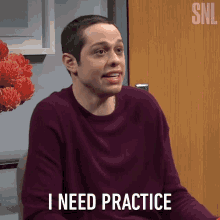Did you know that 92% of American adults fear something about job interviews? Whether it’s anxiety or the fear of rejection, most people don’t like giving job interviews. Yet, they’re still a vital part of the hiring process, and today we want to help make interviews easier for you with these 6 tips.
What is an interview?
An interview is a question and answering session between you and your potential employer. Employers use job interviews to better understand applicants and gauge their skills and confidence. An interview is also an opportunity for you to show off your qualifications and prove why you’re the best candidate for a job.
How do I give a good interview?
Every company has its own approach to interviews, but most will ask you about your qualifications, past experiences, and personal skills. Usually, they’ll also let you ask you questions about the company, too.
Generally, the best way to ace interviews is to research and plan. You should know everything about the company and position you’ve applied to and how your qualifications and experiences are relevant.
6 Tips to Ace Your Next Interview
Research the organization
Employers appreciate applicants who’ve invested the effort to research their organization. Your interviewer likely expects you to know about their company, and they’ll probably even ask you specific questions about it. Your chances of successfully landing a job dramatically go up if you prove you’ve researched the company.
The best way to research is through the company’s website, especially their ‘About us’ and ‘Blog sections. Find out about the company’s history, mission statement, values, and goals. Also, see if you can find any recent news about the company and learn about their leadership. If possible, learn about your interviewer through their LinkedIn profile, too.

You don’t need to know everything about the company, but you should know all the important things. You should have basic knowledge of the company, some familiarity with the interviewer, and an in-depth understanding of your intended job.

Next, draw connections between the job and your skills and experiences. Write down the most relevant connection or experience you have for each requirement. You’ll want to highlight this information during your interview to prove your qualifications.
Study the job description and prepare your answers accordingly
You should also familiarize yourself with the job description to better understand why they’re hiring and what they want. Being able to contextualize your interview and appreciate the company’s needs. Your interviewer will highly appreciate your understanding of their requirements.
Read your job description multiple times and highlight keywords and industry-specific terms. Following such a detail-oriented approach will allow you to better understand what your employers are looking for and what they value. Ideally, you should know everything about the job–its requirements, preferred qualifications, and importance to the company.
Practice your Answers
Practicing your interview will shake off some of your anxiety. Practicing will also help you remember your answers and become more comfortable during the actual interview.
You probably can’t predict the exact questions you’ll be asked, so you should practice using the most common interview questions. Create a structured interview for yourself with practice questions and start by asking questions in the mirror. Once you’re confident in speaking to yourself, ask a friend to practice with you.


For example, if you’re asked to negotiate a difficult deal, your situation is that you’re in charge of an important negotiation. Your task is to conclude that deal on your company’s terms. Your action is to offer the right incentives to sway the other party. Lastly, your result will be that you’ll succeed in the negotiation.
Get to know the STAR method
The STAR (Situation, Task, Action, and Result) method is a preparatory technique for behavioral questions. Behavioral questions are when your employer asks what you’d do in a specific situation, such as if you had to negotiate a tough deal with a client.
Many people find behavioral questions challenging, but the STAR technique will help you breeze through them. When asked a behavioral question, structure your response in terms of situation, task, action, and result.
Dress appropriately
Everything else being equal, the better-dressed candidate has the advantage. That’s not to say your appearance will land you the job, but it will help. A well-dressed candidate conveys confidence and attention to detail, both qualities your interviewer is likely to appreciate.
Research the company’s dress code to find out how their employees typically dress. Try to mimic their dress code and present yourself the same way their existing employees do. This will give a strong positive impression and help frame you as a member of the firm already in your interviewer’s eyes.


Get Organized
You should have everything prepared for your interview at least an hour before it starts. Your interview experience will be least stressful when you don’t have any last-minute surprises or problems.
If your interview is online, familiarize yourself with the platform( Zoom, Google Meet, etc.) you’ll use to avoid last-minute technical problems. Learn how to navigate the platform, and test your microphone and webcam. Also, make sure you have a stable internet connection and have chosen a well-lit and quiet place to sit.